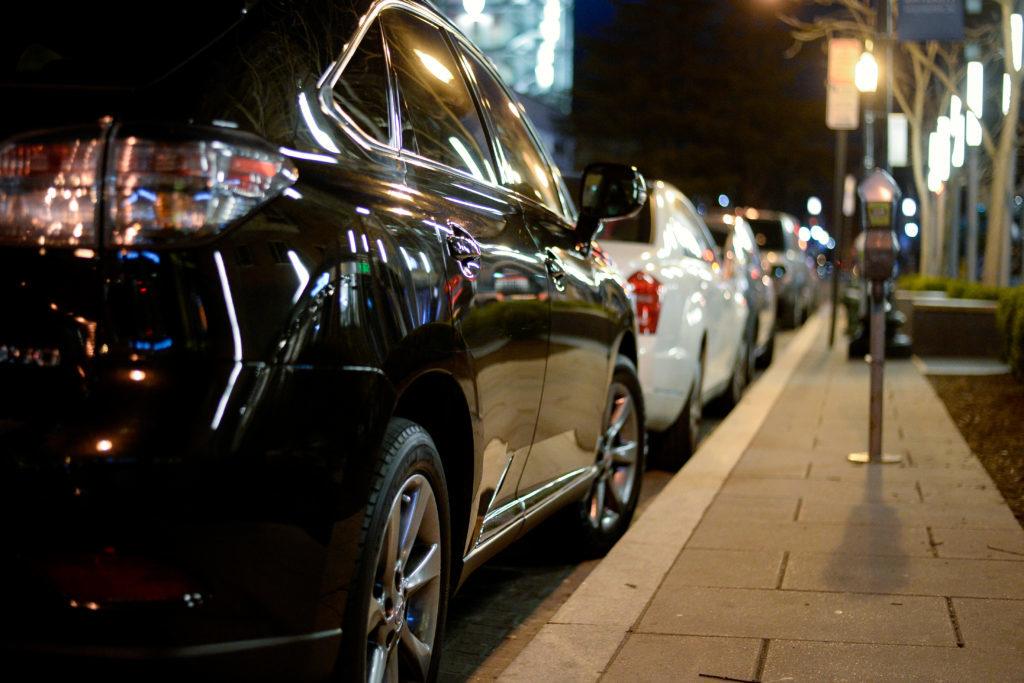The number of stolen cars in the Foggy Bottom area increased in the first two months of the year – prompting local police to increase patrols.
From Feb. 19 to March 22, 37 vehicles have been reported stolen in D.C.’s Second Police District, which includes much of Northwest D.C. and Foggy Bottom – a 27 percent increase from the 29 vehicles reported stolen in the same time frame last year, according to crime statistics from the Metropolitan Police Department. Police and security experts are warning residents to take safety precautions to cut down on thefts.
Auto thefts have increased by 7 percent in the Second District so far in 2018, but an increase in incidents in the past month have spurred police to step up patrols. Forty-seven vehicles were damaged or broken into in one night last month in a neighborhood near 16th Street, The Washington Post reported.
MPD Second District Capt. Kevin Cusick warned residents of a “significant increase” in car thefts in an email alert last week, encouraging residents to take precautions, like parking cars in well-lit areas and investing in anti-theft devices, like the “club,” which locks a steering wheel in place.
MPD increased patrols in Second District neighborhoods in an effort to shift its focus to auto theft prevention and catch suspected perpetrators, according to the email.
Cusick said in an interview last week that all seven police districts in D.C. are experiencing similar issues with stolen vehicles. Overall, auto theft has decreased city-wide in the last six years, according to MPD’s website.
The main victims are owners of newer vehicles leaving their keys in the car’s ignition or in other conspicuous locations, like the glovebox, he said.
Cusick said MPD expects that increased patrols will deter would-be car thieves, decreasing the amount of incidents overall.
“We hope that it will have a dramatic effect on changing the direction of the frequency of what’s going on,” he said.
Darrell Darnell, the senior associate vice president for safety and security, said the University Police Department provides its officers with updates on MPD safety and crime prevention efforts, including cracking down on stolen vehicles. He declined to say what those efforts entail.
“MPD provides GWPD with a daily suspicious activity, and crime report and information that may affect the GW community is shared with GWPD patrol officers so that officers can be on the lookout for suspicious activity while on patrol,” he said in an email.
Darnell reiterated the precautions MPD encouraged residents to take to lower their risk of car theft, but declined to say if UPD will increase patrols or if the department has noticed an increase of auto theft on campus.
There has not been a report of car theft in GW’s crime log since August.
Security experts said increasing patrols wouldn’t necessarily deter criminals and that educating residents on how to protect their vehicles is more effective because most of these crimes occur when cars aren’t properly secured.
Chris McGoey, a freelance security consultant in Los Angeles, said the rise in car thefts could be due to the new presence of “auto theft crews,” criminal groups who steal high-end vehicles in cities across the country.
“Crews come in where they will set up shop this week and will steal as many cars as they can – usually until they move in or get caught,” he said. “If they could arrest that crew who is out there full time looking for and acquiring cars, then you would expect the rate to drop.”
McGoey added that increasing police patrols to combat car theft is a common consequence of any uptick in crime, but it is unlikely to yield results because it can be almost impossible for officers to predict when a car might be broken into.
“People are leaving keys in the car or they’re just lazy and they’re leaving valet keys or whatever so the police can’t do anything about that,” he said. “It’s your private property, they can’t control that. They can’t lock your door at night. You have to do that.”
Samantha Nolan, MPD’s neighborhood watch trainer for the past 18 years, said educating residents on how to change their behaviors to prevent car theft is a foolproof way to guarantee a reduction in the offense. Typically thieves looking to steal cars attempt to open car doors until they find one that’s unlocked, she said.
“Auto theft is preventable, you just have to know what to do,” Nolan said.




